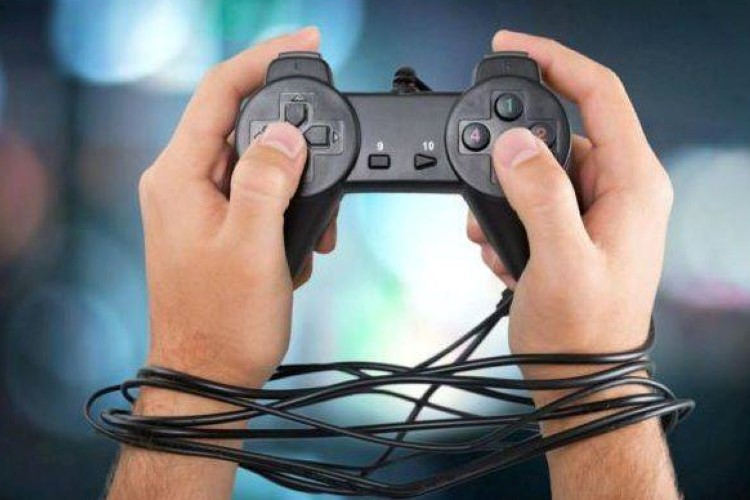
Childhood technology abuse: Brain stimulation and its effects on the child
The abuse of technology can reduce a child’s reflective abilities and lead to an attention deficit. Moderate use of digital devices is required
Children, even seemingly focused on a single interest, have a remarkable ability to be attentive and receptive to the world around them.
And adults are surprised when they see them doing more things together: listening to music, doing homework, watching TV, “chatting”.
But it is also true that this overlapping of information, data and, above all, emotions, can lead to some confusion, also due to the difficulty in psychologically and cognitively processing a large amount of data.
It may happen that, as in a large room where a multitude of information, emotions, stimuli, behaviors are deposited, one does not have the ability to organize and orient oneself.
Abuse of technology, educational advice does not always help
They are often not applied consistently, generating a state of uncertainty and confusion, both cognitive and emotional.
What is more risky is that one adapts to a mental crowding that can significantly reduce the ability to reflect.
In fact, one is ready to respond to a solicitation, but the response, precisely because it is immediate, is impulsive with the risk of becoming increasingly influenced by messages derived from the media, losing originality and creativity.
These are originality and creativity, two important components of a child’s growth: the more mental crowding is precocious, the more there is a risk of reducing these potentialities, which are so important for development.
Overstimulated, the brain may develop attention deficit and poor ability to concentrate.
Something that can often be reflected in the scholastic performance of the children themselves.
According to research by UCLA (University of California Los Angeles), the sequential process of learning – one step after another – helps to collect and memorize information.
On the other hand, those who collect this information in multitasking, i.e. engaging in several things at the same time, have difficulty in concentrating and correctly memorizing all the information that the brain receives.
Excessive use of electronic devices can reduce a child’s reflective and creative abilities and lead him to isolate himself, to avoid confrontation with others, thus hindering proper socialization.
CHILD’S HEALTH: LEARN MORE ABOUT MEDICHILD BY VISITING THE EMERGENCY EXPO STAND
The abuse of electronic devices and technology (from TV to games, to the internet) exposes young people to shared use with an “other” who is not real, but virtual
The rules must not be agreed or changed, as often happens in reality, when dealing with people in the flesh.
The skill required (time-reflex ratio) also gives the feeling of limitless ability which is often disappointed when the young person compares himself with other peers in playful or sporting activities.
Thus, the child or young person runs the risk of feeling even more alone, of being afraid of reality, while they find in the electronic tool a friend who is always available to share the rules that society proposes differently.
As always, it is the balance between the different opportunities and experiences offered to children and adolescents (school, play, sports and social experiences) that allows for harmonious development of the personality.
Establishing time patterns would only appear to reassure parents. Depending on the age, individually, the parent understands when the use of TV, video games, the internet becomes abuse and above all reduces and shuts down their child’s other interests and activities.
Therefore, not pre-packaged rules but created and shared within the parent/child relationship.
Read Also
Emergency Live Even More…Live: Download The New Free App Of Your Newspaper For IOS And Android
Web Addiction: What Is Meant By Problematic Web Use Or Internet Addiction Disorder
Video Game Addiction: What Is Pathological Gaming?
Pathologies Of Our Time: Internet Addiction
Internet Addiction: Symptoms, Diagnosis And Treatment
Facebook, Social Media Addiction And Narcissistic Personality Traits
The (Growing) Army Of Hikikomori In Italy: CNR Data And Italian Research
Anxiety: A Feeling Of Nervousness, Worry Or Restlessness
What Is OCD (Obsessive Compulsive Disorder)?
Nomophobia, An Unrecognised Mental Disorder: Smartphone Addiction
Impulse Control Disorders: Ludopathy, Or Gambling Disorder
Gambling Addiction: Symptoms And Treatment
Alcohol Dependence (Alcoholism): Characteristics And Patient Approach
Hallucinogen (LSD) Addiction: Definition, Symptoms And Treatment
Compatibility And Interactions Between Alcohol And Drugs: Useful Information For Rescuers
Fetal Alcohol Syndrome: What It Is, What Consequences It Has On The Child
Alcoholic And Arrhythmogenic Right Ventricular Cardiomyopathy
About Dependence: Substance Addiction, A Booming Social Disorder
Cocaine Addiction: What It Is, How To Manage It And Treatment
Workaholism: How To Deal With It
Heroin Addiction: Causes, Treatment And Patient Management


